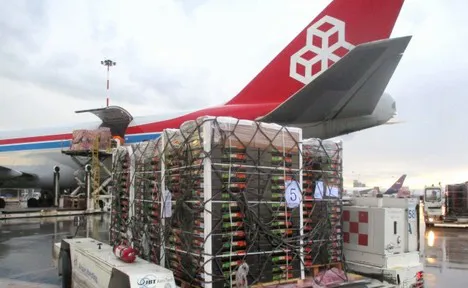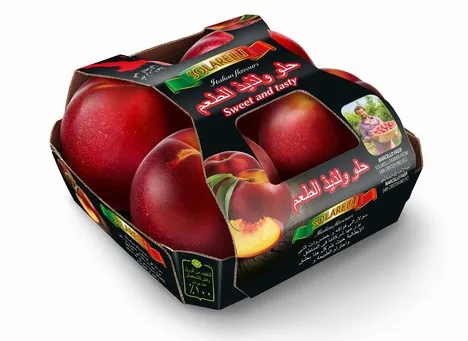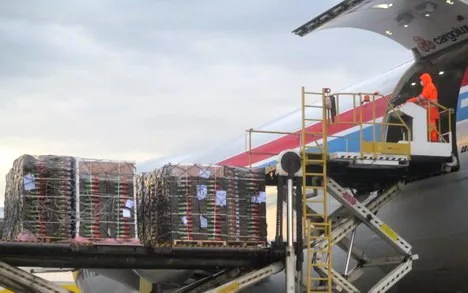For the first time in their ten-year history of business exchanges with  the Middle East, the top quality brand of Apofruit Italia, called Solarelli, left on cargo planes on Monday 15 June for the Arab Emirates market. This is an absolute novelty because in the past the fruit grown by the Apofruit producers in Italy’s most suited areas was transported in the aircraft holds of passenger airlines, reserved for commercial transport.
the Middle East, the top quality brand of Apofruit Italia, called Solarelli, left on cargo planes on Monday 15 June for the Arab Emirates market. This is an absolute novelty because in the past the fruit grown by the Apofruit producers in Italy’s most suited areas was transported in the aircraft holds of passenger airlines, reserved for commercial transport.

What has led to this change? "The lockdown imposed by the anti Covid-19 regulations - explained Renzo Balestri, Apofruit's overseas export manager - has forced many airlines to cancel most of their activities from Italian airports. This has made it impossible for our company, as well as many others whose balance sheets are largely based on exports, to use the established aerial transport system. Fortunately, however, this other interesting opportunity for cargo airlines has opened up.

Before the lockdown, these airplanes were used for other types of products. These can now become an advantageous solution compared to the volumes that can be transported, which is at least twice as much as those contained in an airliner, i.e. about 12 tonnes.
"The Arab countries - added Renzo Balestri - keep on welcoming Solarelli products, especially thanks to the new recyclable cardboard packaging that protects the integrity of the fruit and meets the new ecological trends.

In a difficult period such as the current one, in which the problems of the Coronavirus are compounded by the scarcity of summer fruit due to frosts, it would have been a shame to give up a market as traditionally interesting for us as that of the Arab countries.
This is a market in which other producer countries such as Spain and North Africa are also active and must therefore be carefully monitored.
